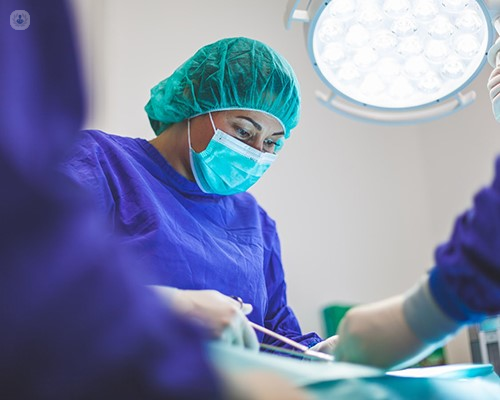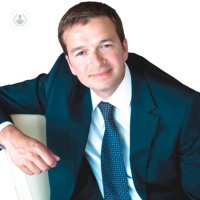What does the future of robotic-assisted heart surgery hold?
Autore:Medical technology is constantly evolving, including the use of assisted ‘robots’ for life-changing surgical procedures such as heart surgery. With robotic tools, such as the da Vinci Surgical System®, patients are able to undergo mitral valve reconstruction using minimally invasive techniques.
Mr Paul Modi is the only robotic mitral valve surgeon in the UK. He trained in the US and brought his knowledge and experience of using the da Vinci system® to his hospital in Liverpool. Here, Mr Modi explains the benefits of robotic-assisted surgery for treating mitral regurgitation and how, very excitingly, surgery looks to further evolve in the future.

What is mitral valve disease?
The mitral valve lies between the left atrium and the left ventricle and consists of two flaps, or leaflets, which are called anterior and posterior leaflets. It is a bit like a parachute, with strings holding the valve down inside the heart and the leaflets being like the canopy of a parachute.
If the strings on one side of a parachute were to break, the canopy of the parachute would blow inside out on that side and it would spill air out of the canopy.
Blood is a fluid just like air is, and if the strings on one side of the canopy of the mitral valve break, then the valve blows inside out on that side, and blood leaks backwards through the heart. This is called mitral regurgitation.
Degenerative mitral valve disease is one of the most common forms of heart valve disease and occurs when a patient develops mitral regurgitation, which can be for a variety of reasons.
What are the advantages of robotic mitral valve surgery?
The advantages of robotic-assisted mitral valve surgery include:
- Faster recovery time – most patients return to normal after two to three weeks.
- Reduced pain – you are still sore for a few days on the right-hand side of your chest, but this quickly settles.
- Shorter hospital stays – averaging three to four days.
- Reduced chance of wound infections – these are rare and is one of the great advantages of less invasive surgery.
Are there any disadvantages of robot-assisted surgery?
The main disadvantage is the cost of the robotic system, in excess of £1.5million capital outlay, with an annual cost of maintenance of £140,000. This has somewhat limited its use within the finite resources of the NHS.
At many of the major North American heart surgery centres, this is the standard of care (e.g The Cleveland Clinic). At the Liverpool Heart and Chest Hospital, we believe in offering patients this same standard of care.
Secondly, there are not many surgeons trained in robotic heart surgery in the UK as it’s an operation with a very long learning curve. I am fortunate that I have been trained by the best robotic heart surgeons in the US, where I used to work – Dr Randolph Chitwood in North Carolina, Dr Doug Murphy in Atlanta, and Dr Sam Balkhy in Chicago.
Is the use of robots the future of surgery?
Certainly, less invasive forms of treatment are the future of surgery, we are seeing that in every specialty, and robotics is just one way we can achieve that. Currently, the da Vinci Surgical System® from Intuitive Surgical is the only one on the market for heart surgery. There are lots of other companies releasing their own robots, with four or five that will soon be coming to the market in the next five years. These are also more reasonably priced.
There are predictions over the next five to ten years that a third of all surgeries will be done with robotic assistance. Robotic-assisted surgery is increasing in all specialties - not just heart surgery. The next major development will be totally endoscopic robotic coronary artery bypass surgery (TECAB) and we are starting that in mid-2020. Patients are routinely discharged the day after surgery, it’s a complete game-changer for bypass surgery.
Read more on how robotic mitral valve surgery works
Book an appointment with Mr Modi today if you’re concerned about your heart health.


